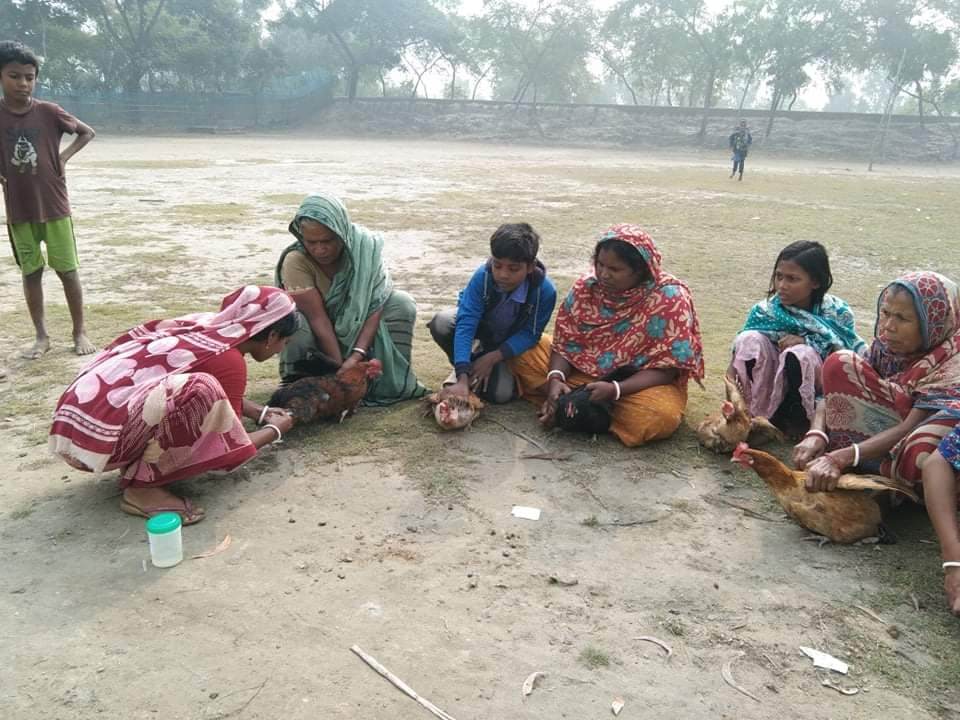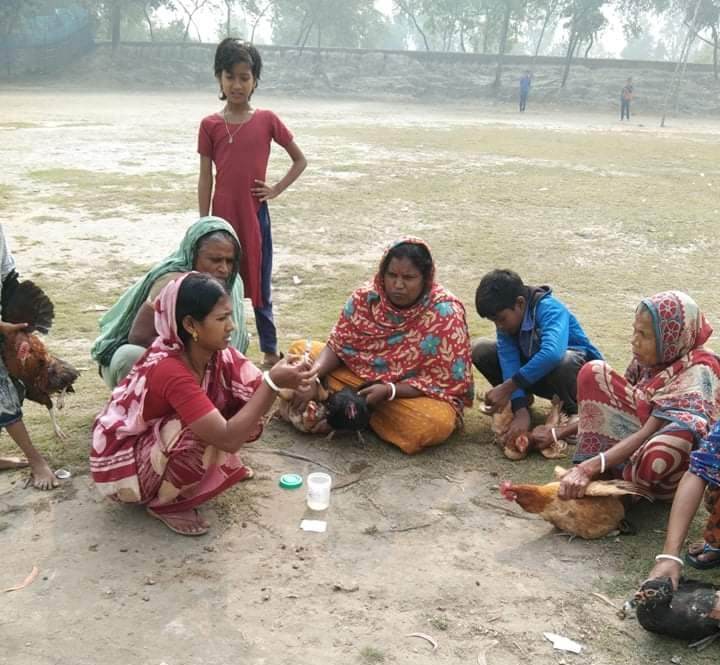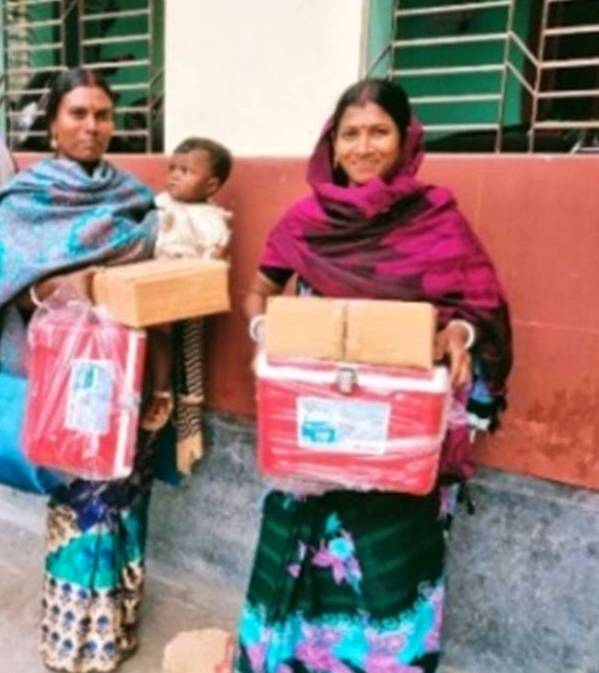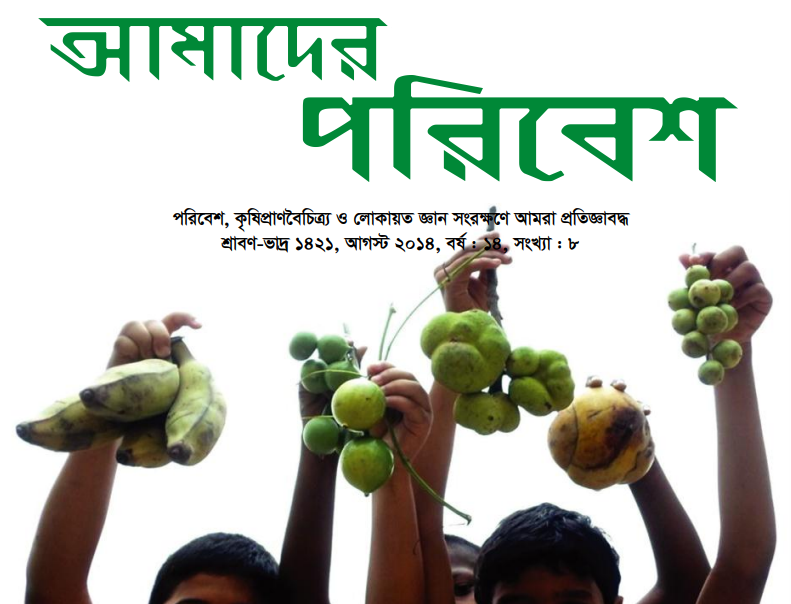Md. Abdul Alim, BARCIK Shyamnagar Resource Centre, Satkhira Twenty six–year-old-Swapna Rani is one of them who are struggling to survive against extreme climate events in South-Western coastal region of Bangladesh. She lives with her husband Hironmoy Sardar (35) and only son in a tiny village called Chunkuri of Shyamnagar sub-district under Satkhira. Swapna Rani found herself destined with poverty since her childhood. Her father, a small farmer, was the only family member earning an income. Her parents had wanted to educate their daughter, but were unable to, due to their poor financial situation. They, therefore, arranged for her a marriage to an unemployed young man, Hironmoy Sardar at the age of 17. Swapna’s husband struggled to put food on the table. At one point, he started fishing and hunting crabs, sometimes works as labourer in honey collecting group and now due to being hit extreme poverty he is forced to migrate to distant districts as contract labor of brick kiln and have to be separated from family for about six months. Being all efforts, he still has been suffering to maintain family of three members. Swapna desperately wanted to improve her situation, and keen to find way out from vicious circle of poverty.

BARCIK a partner of NETZ came to Chunkuri village with PORIBESH project in 2021. Swapna became project participants in October, 2022. From the beginning, she actively participated in all CSO level activities. Even she motivated other members of her CSO to deposit more savings into the group fund so that they could be able to support themselves when in need, especially during the disaster that frequently occurred in their areas and also can be invested into feasible Income Generating Activities. Once upon a group meeting she discussed and expressed how she could serve CSO members by involving a new income generating activities. CSO members discussed about constrain of livestock rearing especially seasonal diseases of livestock and inadequate livestock health services in their village. Then all CSO members were advised that, if possible she can receive training and soon after fortunately PORIBESH project provided that opportunity to its participants. “Without a second thought, I got myself enrolled into the three days long hands-on practical training on livestock health assistant” Swapna said. BARCIK arranged that training in collaboration with upazila livestock department in Shyamnagar. Swapna along with 15 other participants from eight unions participated in the training arranged in December 2022. After training she was provided liquid nitrogen container (Cryocan) and first aid box to practice smoothly.

At the beginning, Swapna got a chance to work as an intern with a trained and experienced union based animal health assistant who serves under the Department of Livestock Services (DLS -under the Ministry of Fisheries and Livestock) in rural level. This experience helped her in gaining confidence and hones her skills in health care practices for goats, hens, ducks, sheep etc.
Currently, she has been working independently in local remote areas. She also serves at livestock vaccination camp where a flock of poultry birds and goats are gathered. She receives some honorarium from the camp organizers. Swapna charges at minimum cost for vaccination as she receives vaccines from upazila livestock department at subsidized rate. “I do not just provide treatment, but also additional support to my clients such as raising awareness on preventive health care issues and feeding practices,” said Swapna, who feels very proud when people refer to her as ‘doctor’.

Motivated by a desire to learn something new, Swapna now wants to get trained in more sophisticated technologies such pregnancy testing, blood testing etc. She also wishes to save money to buy vaccines and keep a stock of basic medicine at home for emergency.
Swapna is becoming popular as a livestock health worker (Para Vat.) in surrounding villages and hopes through this profession she will be able to get rid from poverty in near future.
Translated by
ABM Touhidul Alam

